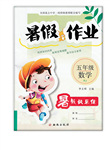题目内容
【题目】阅读下列短文,从每题所给的四个选项(A、B、C和D)中,选出最佳选项。 The Chinese art of paper cutting has a long history. The earliest paper cutting was found in China 1,500 years ago. The United Nations Educational, Scientific and Cultural Organization has recognized the art, called Jianzhi, on its Intangible Cultural Heritage (非物质文化遗产) list. But Jianzhi is at risk of disappearing. Voyo Woo, a Chinese immigrant to the US, hopes to bring the art back to life.
Voyo Woo loves paper cutting. And she works hard to celebrate the ancient art form. On a recent Saturday, Ms.Woo held a paper cutting show at a shopping center near Washington. She demonstrated the art to crowds for hours at the center.
Voyo Woo began to study the art of Jianzhi as a 14-year-old girl in her hometown in southeastern China. She said all the students at school had to learn the art. But she developed a special love for it, so her teacher gave her extra training after class. Later, she won second prize in a national painting and handwriting competition. Ms.Woo came to the US after she finished college in 2008. Soon after, she became involved in an event to support and expand understanding of Chinese paper cutting. She has been invited to demonstrate the art at a wide collection of events. She has also shown her skill at famous museums like Sackler art galleries in Washington. Ms.Woo says paper cutting represents Chinese cultural values, history and stories of people's lives. She uses the art as a tool to present Chinese culture to people who know little about it.
Ms.Woo placed examples of her art around her as she demonstrated paper cutting at the shopping center. Some shoppers, like Ann Russ, took part in a workshop. Ms.Russ was struck by the finely detailed nature of the work. She said it put her at ease. Voyo Woo says Chinese art is for all people. “It is amazing how Chinese art can echo with people from other cultural backgrounds.”
(1)What can we learn from Paragraph 1?
A.Paper cutting is popular now in the US.
B.Jianzhi is regarded as a cultural heritage.
C.Paper cutting has a long history in the US.
D.Ms.Woo worries about the future of Jianzhi.
(2)Ms.Woo held a paper cutting show at a shopping center to__________.
A.earn more money
B.do her job for the United Nations
C.celebrate an art festival
D.make paper cutting well-known
(3)What is Paragraph 3 mainly about?
A.Ms.Woo's success as a paper cutting artist.
B.Ms.Woo's experience as a Jianzhi artist.
C.The story of Ms.Woo and her teacher.
D.The school life of Ms.Woo in China.
(4)The events mentioned in Paragraph 3 are developed__________.
A.by time
B.by space
C.by example
D.by comparison
(5)We can infer from Ann Russ's words that__________.
A.she was confused about paper cutting
B.she thought the art of paper cutting was too detailed
C.she admired the art of paper cutting very much
D.she wanted to popularize the art of paper cutting
【答案】
(1)B
(2)D
(3)B
(4)A
(5)C
【解析】1 细节理解题。根据第一段第三句可知,剪纸艺术已被联合国教科委组织认定为非物质文化遗产。 2推理判断题。根据第一、二段内容可知,Ms.Woo在购物中心展示剪纸艺术主要是为了让更多的人了解这种艺术。
3 主旨大意题。根据文章第三段的内容可以总结出,本段主要讲述了Ms.Woo是如何开始学习剪纸技艺,以及后来获奖并到美国传播剪纸艺术的经历。
4 文章结构题。根据文章第三段的内容可知,本段是以时间为主线介绍Ms.Woo的剪纸艺术经历。
5 推理判断题。从最后一段可知,她非常欣赏剪纸艺术。

 应用题作业本系列答案
应用题作业本系列答案 暑假作业暑假快乐练西安出版社系列答案
暑假作业暑假快乐练西安出版社系列答案